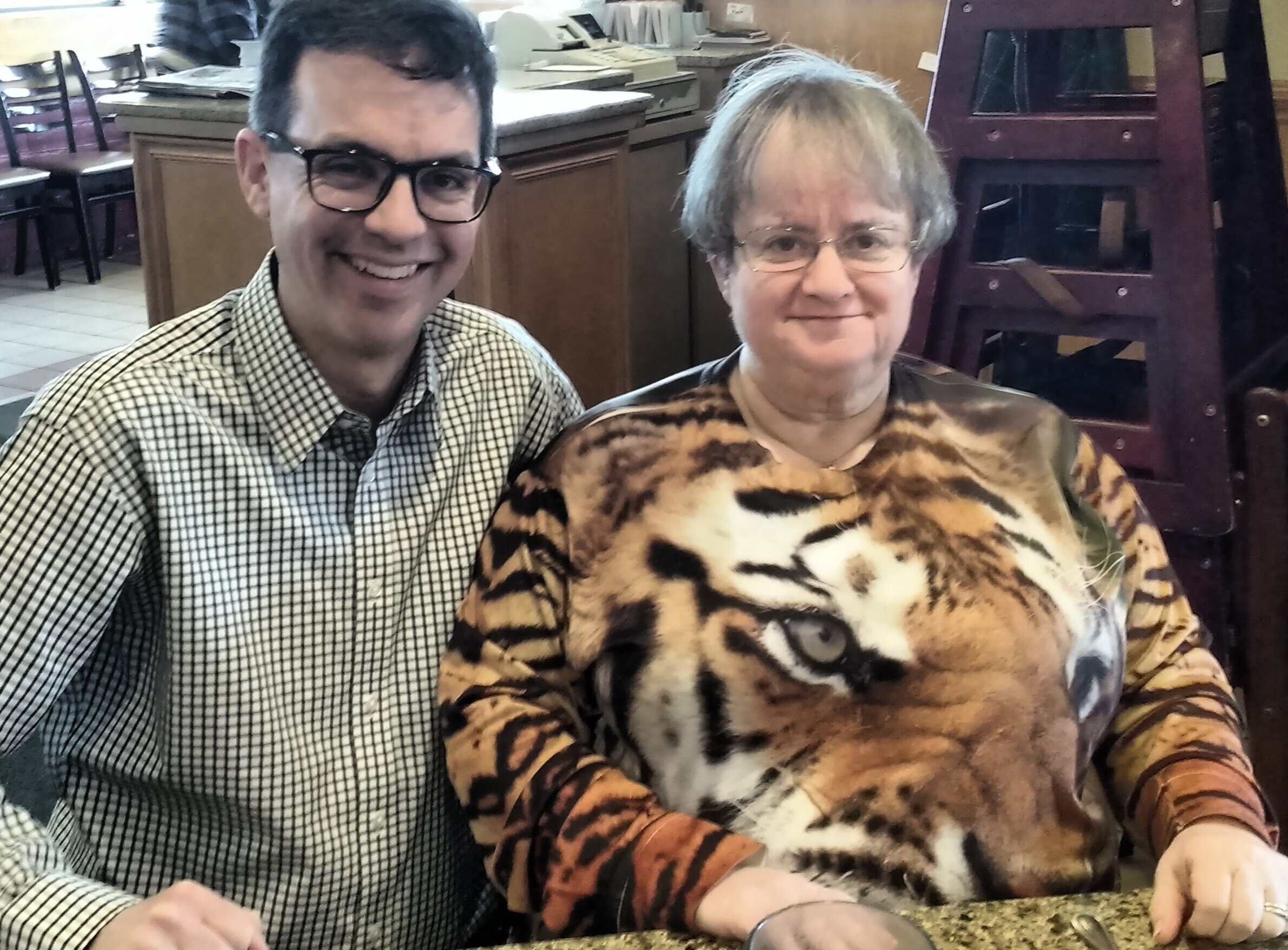“Clear the runway.” That’s how Maureen Wells described her family’s approach to her independence as a child. After a career as a special education teacher, she’s still not done helping to clear the runway for others.
When Maureen was born with spina bifida and hydrocephalus in 1955, doctors told her parents not to expect her to survive beyond six months. If she did, she wouldn’t walk, talk or grow from the waist down. So she was placed at Misericordia Home, in Chicago. At the age of nine months, doctors discovered that her hydrocephalus had arrested on its own with no medical intervention. At sixteen months she was able to talk and move her extremities. “Take her home, she’s going to be fine,” doctors declared.
Fast forward -- Maureen retired in 2018, after 40 years as a special education teacher in Chicagoland. In between, she earned two Master’s degrees, married, and has been mom to a step daughter. Most recently, through ISBA, she’s begun advising parents on understanding an Individualized Education Program to gain school services available to children with spina bifida. (See sidebar: What You Need to Know about an IEP.)
Maureen has developed keen insights into living with spina bifida. Parents play a huge role, she says. “I was never treated any differently than my four younger siblings. For example, I was expected to figuratively ‘carry my weight’ and do what I could do. In the kitchen, I wasn’t expected to carry dishes to the sink, but I could take them to the counter. Expectations were reasonable.”
She learned to walk before age three using full length leg braces and crutches. “I was deathly afraid of falling. I’d practice with my dad walking behind. If I started to fall, he’d catch me.”
To accommodate a fear that she would be knocked over, in elementary school Maureen was transported to and from class in a red wagon. Later she rode a tricycle through the halls.
In middle school, though, she was bullied by a classmate, who would cause her to fall. “When I told my parents, it turned out my dad knew the bully’s dad. They had a conversation. I was never bullied again. At my 20-year class reunion, the bully apologized to me and asked for my help. His daughter was born with spina bifida and he was terrified. I advised him that her classmates would likely do to her what he had done to me. I also advised him to talk with the school nurse, her teacher and principal and with his daughter’s class.”
Maureen has experienced discrimination because of her spina bifida. Instead of being crushed by it, though, it has strengthened her resolve to make her way in the world on her own terms. When Maureen applied for her first teaching job at a private school, she was offered the position over the phone based on her resume. But when she showed up walking with crutches, she was told the school didn’t want her.
“I was devastated. I have a very strong faith. Never did I think my disability would prevent me from being a teacher,” she says. It didn’t.
“I’m happy to be a role model, to show people what’s possible. I realize not every child born with spina bifida will turn out the same. We’re all different, but we all have great potential,” Maureen says.
A comment she first heard decades ago from a roommate with spina bifida is one she regularly uses. “I’ve got good news and bad. The bad news is spina bifida is not going away. But the good news is that your life can get better.”
Maureen Wells’ life is a testimony to those words of wisdom.
Maureen Wells and ISBA Executive Director Matt Larsen
IEP & Education Workshops
ISBA holds online and in-person workshops on IEP and education issues. Visit our Events page for details.
Maureen Wells Funds ISBA Scholarship
In late 2019, Maureen Wells donated funds to establish an ISBA scholarship in memory of her friend Mary Mayer. Mary was a fiercely independent individual with spina bifida. She fought for social justice and the rights of people with disabilities. She served as an advocate by example, and by providing useful and accurate information to assist others with educational, social, and financial resources to meet their needs.
The Mary Mayer Scholarship will be awarded annually for the next four years as part of the ISBA scholarship program. The first recipient of the Mary Mayer Scholarship is Jennifer Bradtke of Bloomington, IL, who is studying for a master’s degree in applied behavior analysis at Ball State University.
What You Need to Know About an IEP
“I’ve written so many IEPs in my teaching career, I could write an IEP in my sleep,” says Maureen Wells. With that background, Wells presented an ISBA seminar on ”What is Special Education? An EIP Bootcamp for Families,” in Bloomington, IL, last September. If your child is having educational difficulties, he or she may be entitled to an Individualized Educational Program (IEP). She encourages all parents of students with spina bifida to learn more about their educational rights. “You have the right and the responsibility to advocate for them,” she tells parents. ISBA provides several resources for parents looking to learn more about IEPs. Visit ISBA’s “Special Education and IEP Resources” on I-SBA.org.


